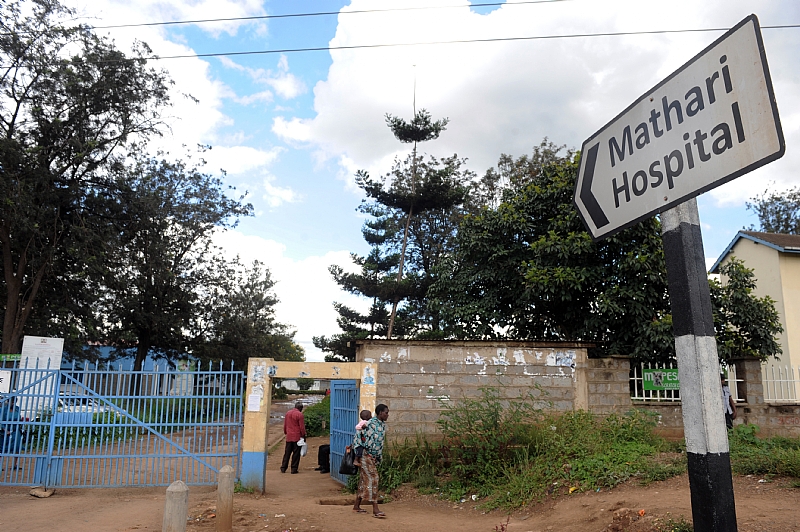
[ad_1]
More than 13% of the global burden of disease is due to disorders such as depression, anxiety, schizophrenia and substance abuse. Almost three-quarters of this burden falls on low- and middle-income countries, due to scarce resources and investment in health. Many countries allocate less than 1% of the health budget to mental health. Poor or non-existent access to evidence-based care also leads to the need for long-term care and higher costs of care.
The economic burden is also significant. The global cost of lost productivity due to depression and anxiety disorders is estimated at $ 1.15 trillion a year. About 4.7 billion days of productivity are lost.
There is good evidence that these conditions can be treated. But estimates of people in sub-Saharan Africa receiving treatment are discordant. Only 15% of South Africans with mental health problems receive treatment. In Ghana and Ethiopia, the estimates are less than 10%.
We have been researching mental health and health economics for decades around the world. Our research has shown that, for example, peer support for the treatment of perinatal depression shows benefits that far outweigh the costs incurred to administer the treatment. We have also seen that the Psychological Treatment of the Healthy Activity Program in India provides better clinical results at lower costs. In a recent study in Ghana, we have shown that investments in population-level screening and subsequent treatment could yield benefits that outweigh the costs. The findings imply that every dollar invested over a 10-year period in treating depression, anxiety disorders, and schizophrenia would generate around $ 7.4, $ 4.9 and $ 1.7 in benefits to society. respectively.
There are compelling arguments that neglecting mental health will make it extremely difficult to achieve many other goals. These include the Sustainable Development Goals related to poverty, HIV, malaria, gender empowerment and education.
For example, poverty rates are twice as high for people with mental health conditions compared to those without. People with mental illness or substance use disorders are more likely to become infected with HIV. Poor mental health weakens immunity and adherence to malaria treatments.
Clearly, there are reasons to invest in mental health and, more importantly, to make interventions and services accessible to all. Having made this case, we also offer recommendations on how it could be accomplished.
Ways to invest
Political will and support from public officials affect the share of GDP allocated to mental health. For Africa as a whole, public spending on mental health per capita is $ 0.1.
Previous writings have offered practical advice for mental health advocates to convince politicians. These include placing arguments in political context, working with public officials who advise politicians, and offering a multisectoral explanation of the larger mental health landscape.
Additionally, advocates must leverage crisis situations like the COVID-19 pandemic to advance a long-term agenda for mental health and push for important commissioned intergovernmental reviews. For example, the US Institute of Medicine report on Neurological, Psychiatric and Developmental Disorders led to increased prioritization and investment in mental health research by major international donors.
The convening of an African Ministerial Summit on Mental Health Financing as a strategic follow-up to the World Ministerial Summit on Mental Health in October 2018 would be a major boost.
We propose that governments invest in making mental health care training and practice attractive and relevant. This can be done by offering mentoring programs and the use of digital and mobile technologies to provide care. Brief retraining programs that focus on assessment and management of common cases in the community and in outpatient settings can be conducted annually for students and health care staff.
A national survey on mental health conditions is key for all countries because ignorance of the prevalence and impact of mental health needs is one of the reasons why they do not receive enough attention. No African country is currently doing it. But Nigeria is coming. It has a survey conducted between 2001 and 2003, but only in the Yoruba-speaking states that represent 22% of the population.
Room for improvement
There are other areas of innovation. One could be a decentralized public health spending model that allocates resources according to performance, linking funding to specific mental health needs.
Governments could introduce economic incentives that favor community care. This means that community-based rehabilitation initiatives would receive more support. For example, in Rwanda, a national government incentive for faith-based non-profit and subnational public healthcare providers increased healthcare services by 20%.
Life and health insurance also need to be rethought. These should reflect a movement toward investment in preventive medicine and not current curative policies.
Deliberate government leadership should promote local production of psychotropic drugs as was done in the case of personal protective equipment in response to containment of COVID-19. Technology must also be used to deliver mental health services in times of public health emergencies.
The foundation of all our recommendations is adequate and timely funding for mental health. This requires a multisectoral strategy that shows the economic and health benefits of investing in mental health in Africa.
Benedict Weobong receives funding from the University of Ghana Research Fund, the National Institutes of Health, the Wellcome Trust, the World Health Organization, and the UK government’s Office for Foreign and Commonwealth Development.
Crick Lund receives funding from the National Institute for Health Research, the Council for Economic and Social Research, the Wellcome Trust and the UK Government’s Office for Foreign and Commonwealth Development.
Justice Nonvignon receives funding from DANIDA, Commonwealth and Foreign Affairs Development Office, UK, PATH, World Health Organization, UNICEF.
By Benedict Weobong, Senior Lecturer / Epidemiologist of Global Mental Health, University of Ghana and
Crick Lund, Professor at the Alan J. Flisher Center for Public Mental Health, Department of Psychiatry and Mental Health, University of Cape Town and
Justice Nonvignon, Adjunct Professor, University of Ghana![]()